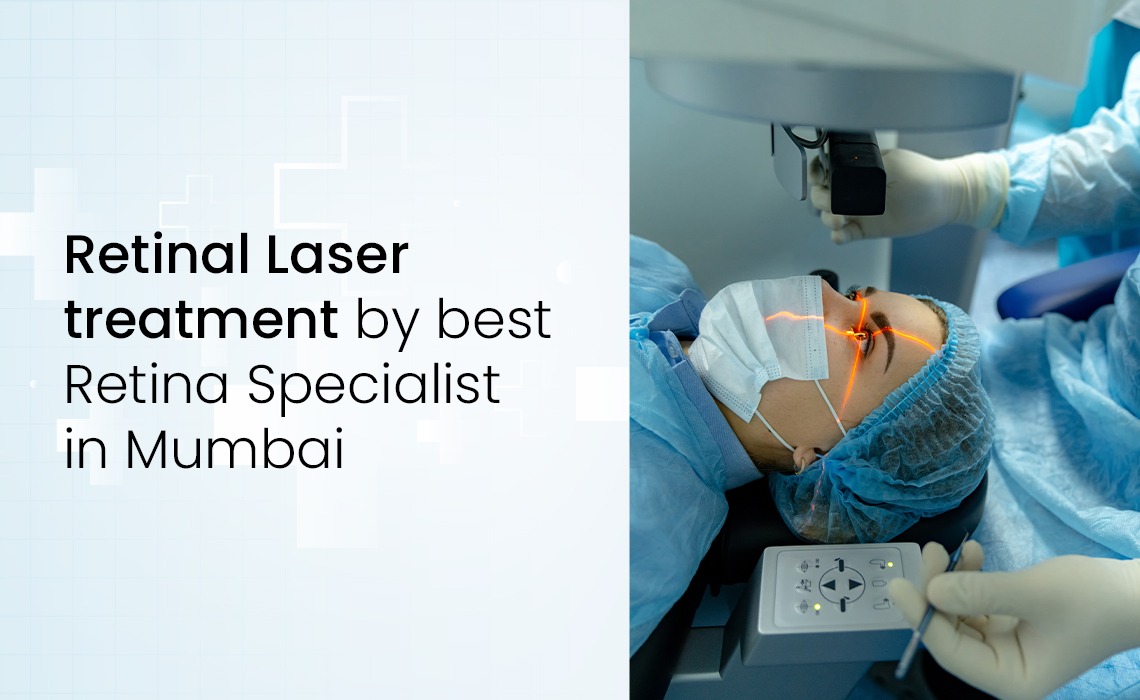Retina laser treatment is a powerful tool in modern ophthalmology, helping people with retinal diseases maintain and protect their vision. For conditions like diabetic retinopathy, retinal tears, and macular edema, laser treatment can be a game-changer, allowing patients to avoid more invasive procedures and prevent potential vision loss.

Dr. Rashi C Tandon – Retina Specialist
What is Retina Laser Treatment?
Retina laser treatment is a non-invasive, outpatient procedure that uses precise laser technology to target and treat specific areas of the retina. The retina, located at the back of the eye, is responsible for capturing light and sending visual signals to the brain. When the retina is damaged or diseased, it can lead to serious vision issues. Laser treatment works by sealing off damaged or leaky blood vessels, repairing retinal tears, and controlling abnormal blood vessel growth.


Advanced Multisport Appasamy Jericho Green Laser at our Hospital
Who Can Benefit from Retina Laser Treatment?
Retina laser treatment is used to treat a range of retinal conditions, including:
•Diabetic Retinopathy: This common complication of diabetes damages blood vessels in the retina. Laser treatment can help reduce leakage and slow the disease’s progression.
•Retinal Tears or Detachments: Retinal tears can lead to detachment if not treated. Laser treatment helps create a seal around the tear to prevent further damage.
•Macular Edema: This condition involves swelling of the retina due to fluid accumulation, often associated with diabetic retinopathy.
•Age-Related Macular Degeneration (AMD): In some cases, laser treatment may help control blood vessel growth in AMD.
How Does Retina Laser Treatment Work?
During retina laser treatment, a specialized laser is used to create small, controlled burns or spots on specific areas of the retina. This helps:
•Seal Leaky Blood Vessels: In diabetic retinopathy, the laser can help close off leaking vessels to reduce fluid in the retina.
•Stop Abnormal Blood Vessel Growth: By targeting areas where abnormal blood vessels are growing, the laser can limit further complications.
•Repair Retinal Tears: Laser treatment helps create a seal around tears, preventing retinal detachment.
What to Expect During the Procedure
Retina laser treatment is typically quick, minimally invasive, and performed as an outpatient procedure. Here’s what you can expect:
1. Preparation: You’ll receive numbing eye drops, and your pupils will be dilated to give the doctor a clear view of the retina.
2. Laser Application: You’ll be seated in front of a specialized laser machine, where the doctor will use the laser to apply controlled pulses to the targeted areas of your retina.
3. Minimal Discomfort: The treatment is usually painless, though some patients report feeling a slight discomfort or mild stinging sensation.
Recovery and Aftercare
After laser treatment, you can typically go home the same day. It’s normal to experience some mild blurriness, discomfort, or light sensitivity, which usually subsides within a day or two. Follow-up visits are essential to ensure the retina is healing as expected and to monitor for any further issues.
•Avoid Straining: Rest your eyes and avoid heavy lifting or strenuous activities for a few days post-treatment.
•Wear Sunglasses: Protect your eyes from bright lights and sunlight as they may be sensitive following the procedure.
Benefits of Retina Laser Treatment
1. Prevents Vision Loss: Retina laser treatment can prevent further damage, helping preserve vision in patients with retinal diseases.
2. Minimally Invasive: The procedure is typically outpatient, with minimal recovery time and discomfort.
3. Highly Effective: Laser treatment is proven to be effective for managing and controlling retinal diseases, reducing the risk of severe vision loss.
Risks and Considerations
While retina laser treatment is generally safe, there are some potential risks and side effects, including:
•Temporary Vision Disturbances: Some patients experience temporary blurring or loss of peripheral vision.
•Scarring: In rare cases, laser treatment can cause minor scarring on the retina.
•Need for Additional Treatment: Some patients may require multiple sessions or further treatment if the condition progresses.
It’s important to consult with an experienced retina specialist to understand whether treatment is suitable for your condition.
Conclusion
Retina laser treatment has transformed the way we approach retinal diseases, providing a safe, effective, and minimally invasive way to protect and preserve vision. By targeting the root of issues like diabetic retinopathy, retinal tears, and macular edema, laser treatment helps patients maintain quality vision and reduces the likelihood of severe complications.
If you or a loved one is experiencing symptoms or has been diagnosed with a retinal condition, consult an experienced retina specialist in Mumbai to explore treatment options. Early intervention can make all the difference in preserving vision and preventing future complications.




